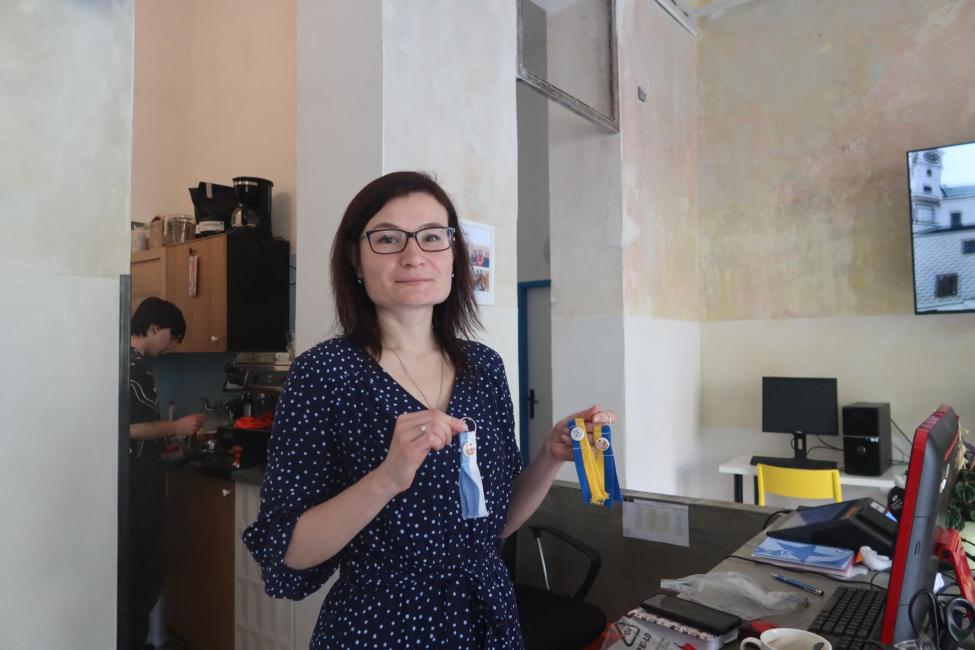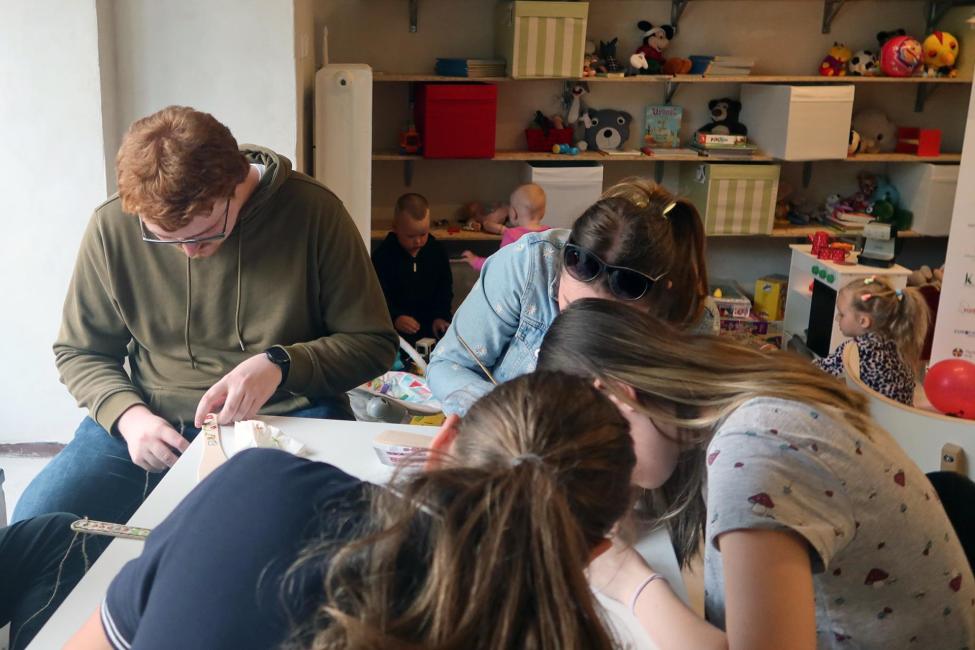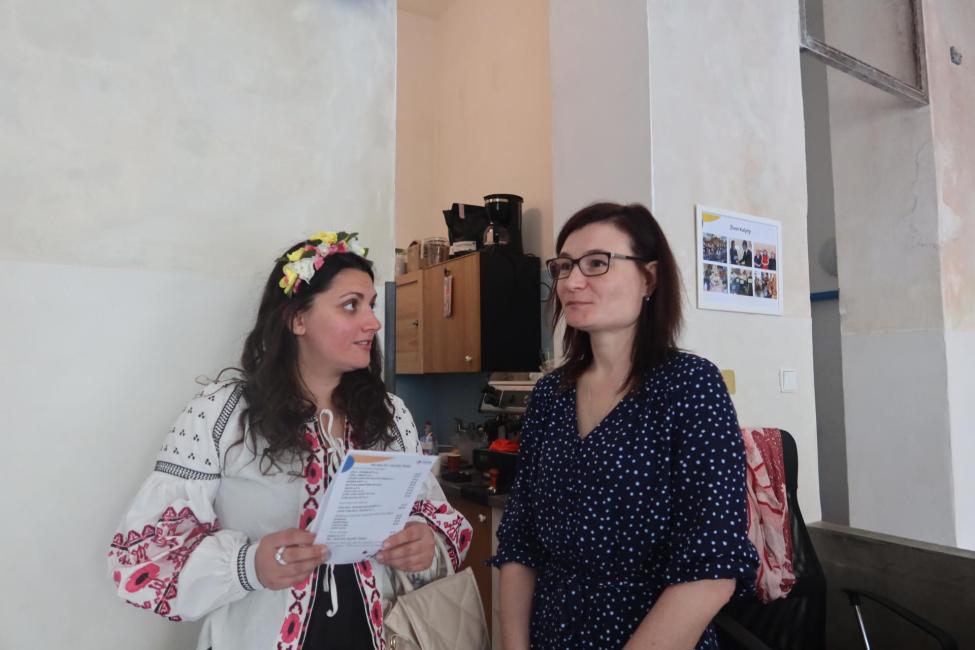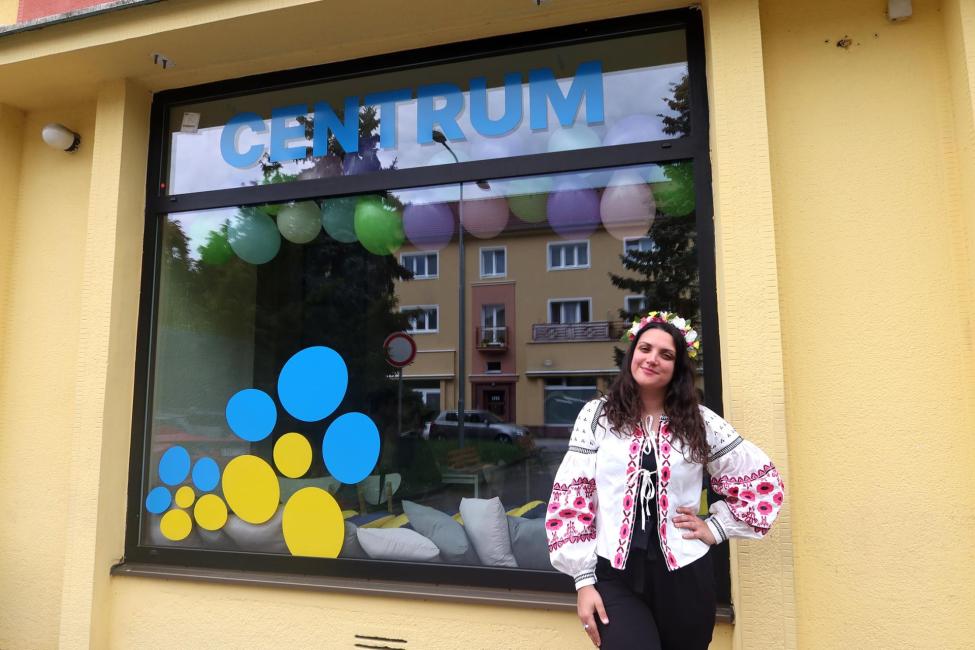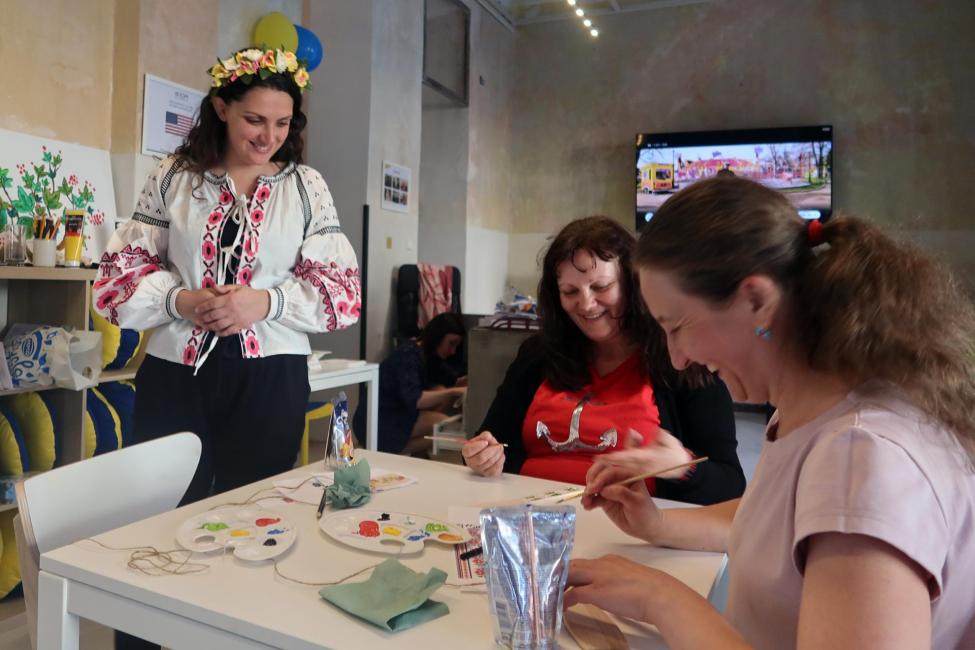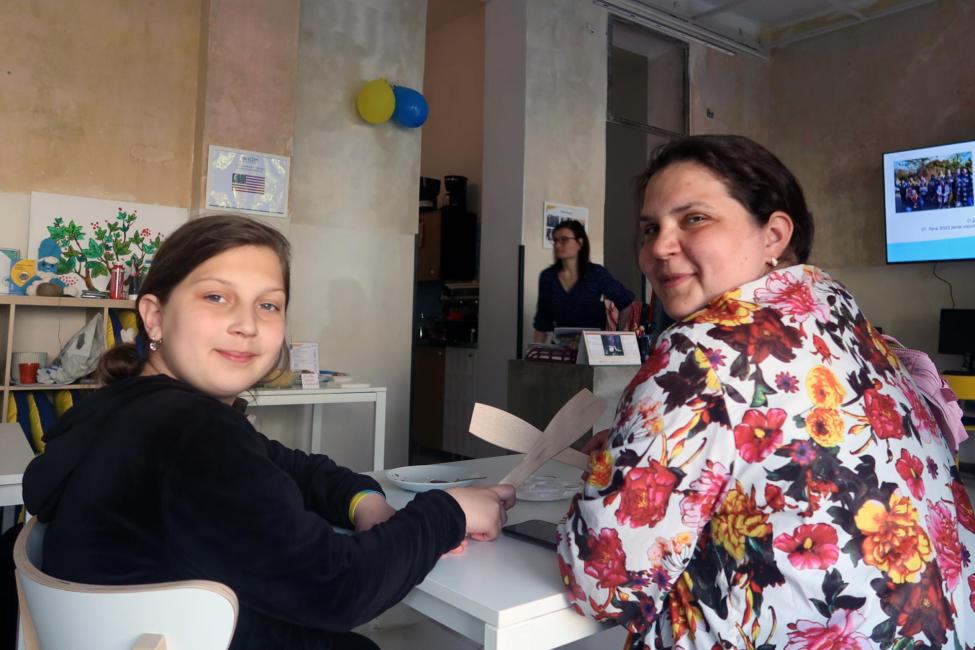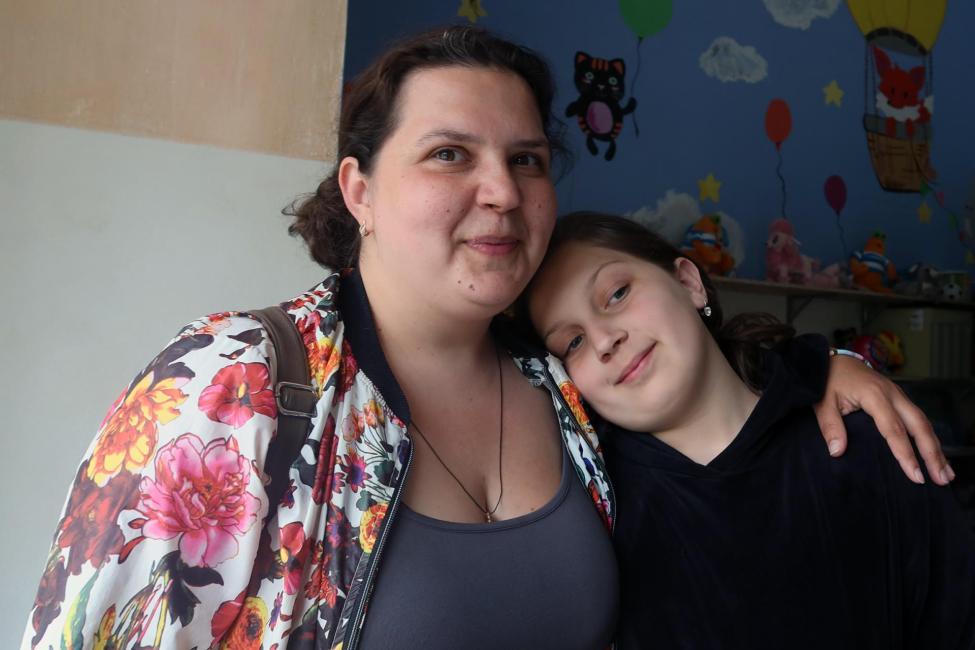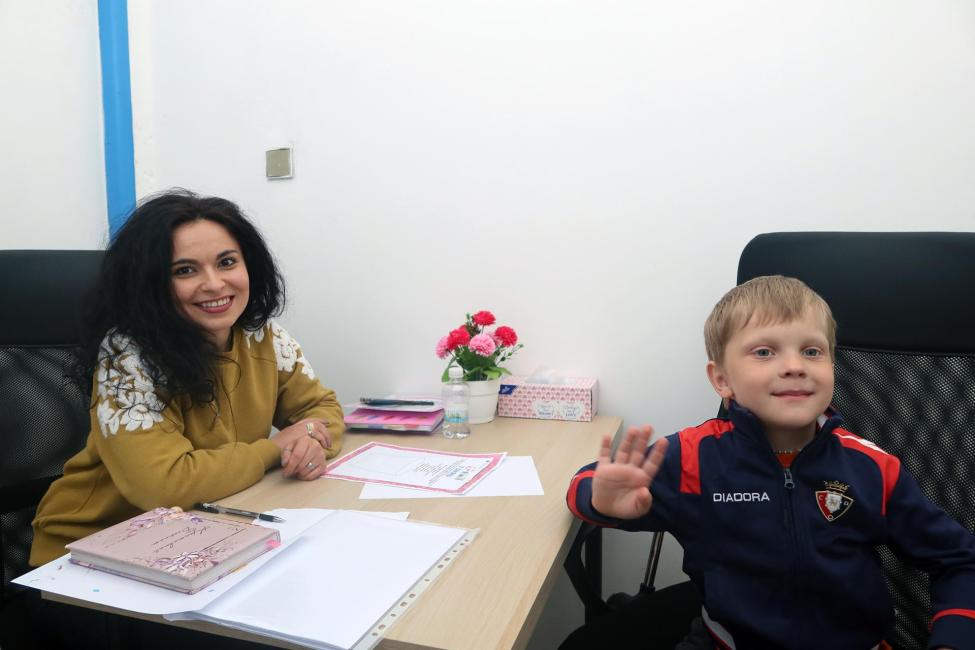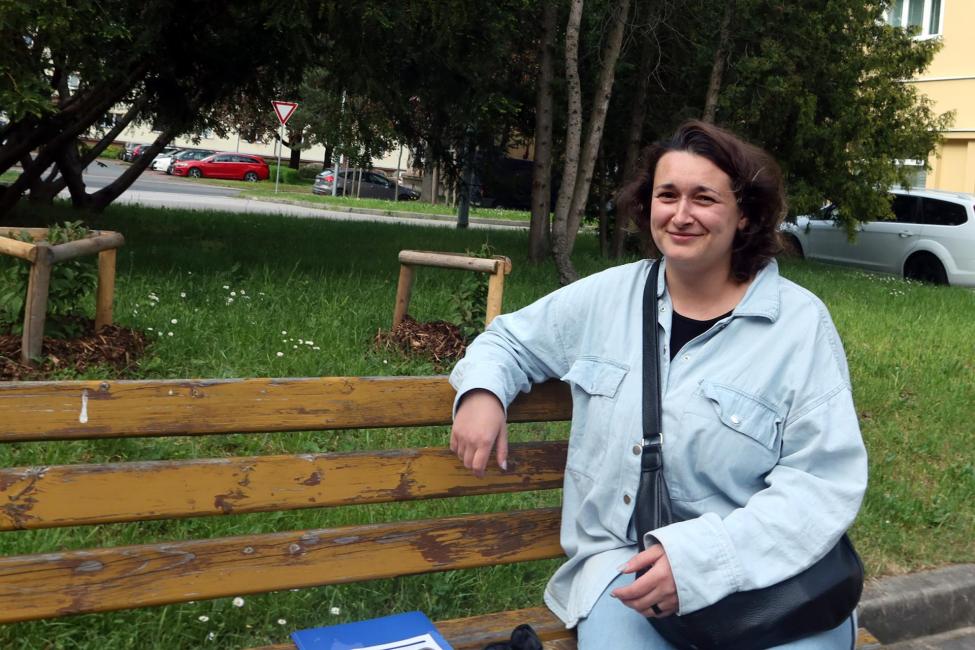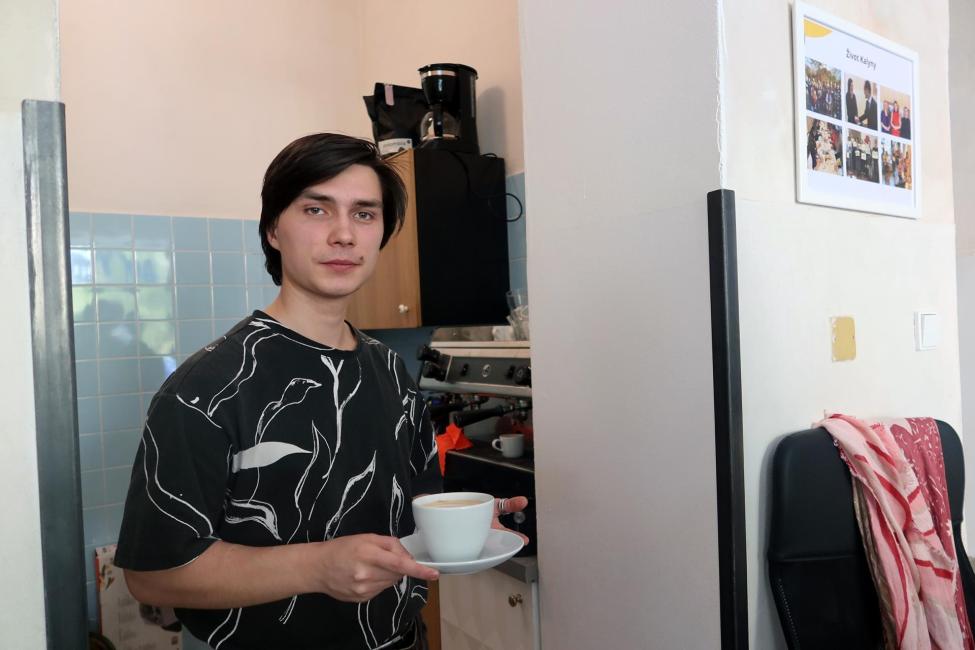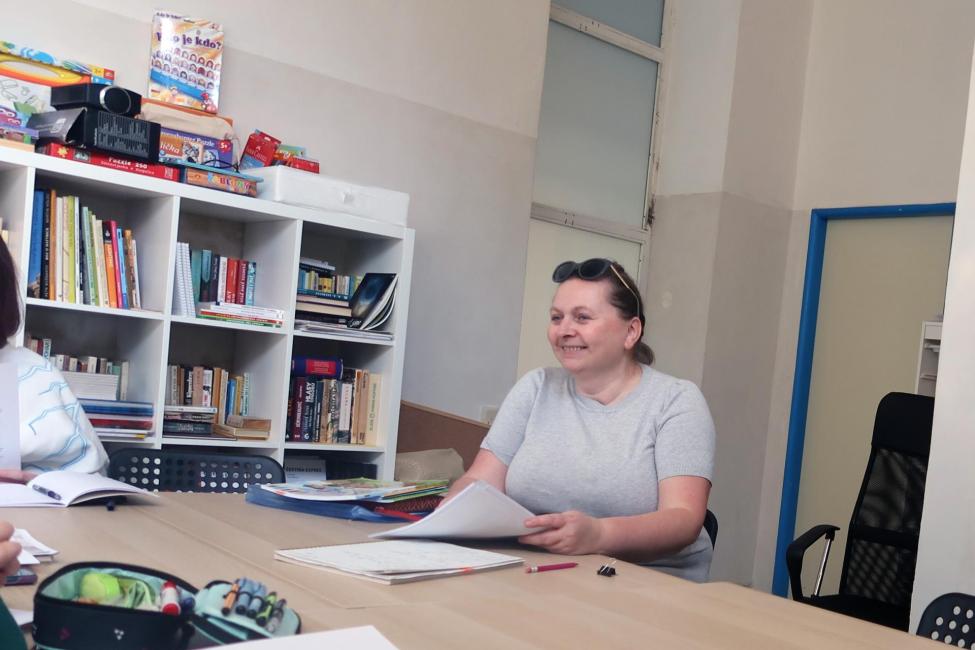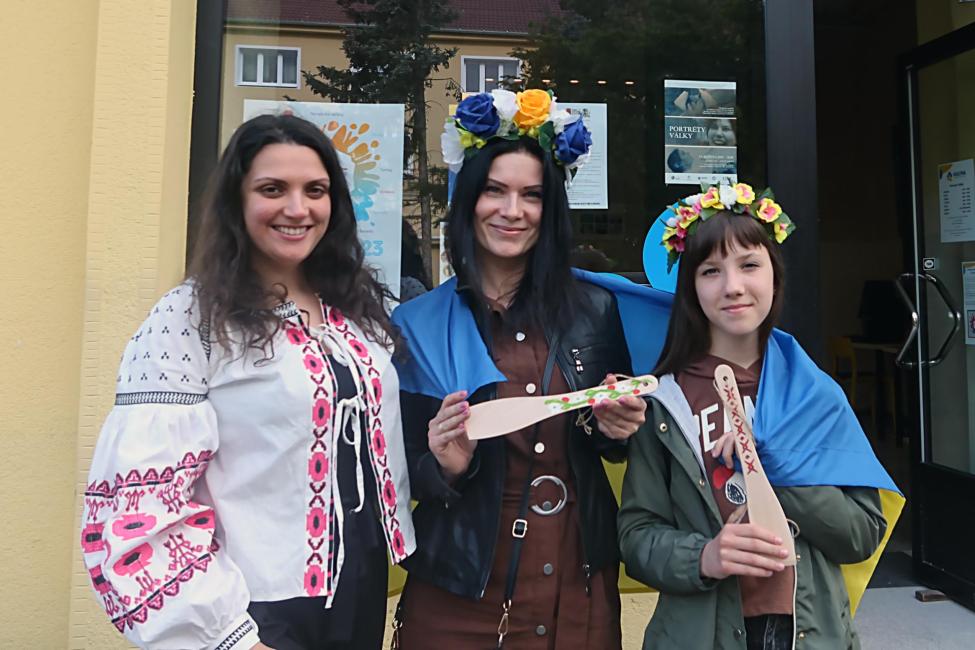-
Who We Are
WHO WE AREThe International Organization for Migration (IOM) is part of the United Nations System as the leading inter-governmental organization promoting since 1951 humane and orderly migration for the benefit of all, with 175 member states and a presence in over 100 countries. IOM has had a presence in Czechia since 1998.
About
About
IOM Global
IOM Global
-
Our Work
Our WorkAs the leading inter-governmental organization promoting humane and orderly migration, IOM plays a key role to support the achievement of the 2030 Agenda through different areas of intervention that connect both humanitarian assistance and sustainable development. Across Czechia, IOM provides a comprehensive response to the humanitarian needs of migrants, internally displaced persons, returnees and host communities.
Cross-cutting (Global)
Cross-cutting (Global)
- Data and Resources
- Take Action
- 2030 Agenda
(Článek k dispozici v češtině na tomto odkazu.)
Pardubice, 26 June 2023 – The next creative workshop at the community centre for Ukrainian refugees in Pardubice, Czechia, is starting in more than an hour, but the participants have already gathered outside, chatting the afternoon away around a cup of coffee.
Some women are sharing the latest news from back home, many of them have left their husbands and family members behind when fleeing the war in Ukraine. Further down, some members are improving their Czech skills during language classes while others are waiting for their private counselling session to begin.
“In the beginning, there was nothing; we did not have a space of our own to hold events, so we relied on public spaces made available to us by the community,” recalls Marina, one of the coordinators at the Kalyna community centre.
Marina, an English language teacher, came to Czechia four years ago. When the war started, Marina volunteered as an interpreter in KACPU (Regional assistance center for Refugees from Ukraine). “After three months I understood that I am actually good at helping people,” says Marina. In June 2022 Marina was thrilled to join the team of Kalyna community centre. “Working in an NGO is important for me. It means that no one dictates to us what to do and we design our projects in the way they have the biggest impact. I have so many ideas and here I can bring them to life,” she adds.
Kalyna team helps Ukrainian refugees with translations, visa issues, applying for assistance, getting appointments at doctor’s or meeting specific needs like finding a wheelchair… But this is not the main ambition of the centre. “What makes Kalyna unique is that we organize a community, helping people connect. We offer them a place to communicate, spend time and make friends,” says Marina.
Marina recalls that the first project she was involved in Kalyna was quite difficult. The team of four people (who did know each other well) had only two days to organize a picnic for the Ukrainian community. The result was beyond expectations. Over 80 people joined the event. One of the guests without any preparation provided a three-hour-long entertainment programme for the girls and boys of various age groups. “That’s how we met Katia. Children just love her! In Kalyna she organizes creative workshops, as well as a women club. She is a real find for us!” says Marina.
Marina says that every day she gets proof of community power. When, after refurbishment, they decided to decorate the children’s corner, Marina was to prepare the sky-blue background, but she could not find the ladder. At that moment a woman living across the street entered to ask about her new neighbors. “It was a miracle. In half an hour we had a ladder!” “There is no need to look for the right people outside of our community. They are here, eager to help, share and contribute! That is how we found people who helped to clean the office after the refurbishment. That’s how we got the psychologists and women who hold creative workshops.”
Katia, a cheerful young woman wearing a bright embroidered shirt, enters the room. As she gets ready for the workshop, she shares her story. Back in Mykolayiv, Katia ran two development centres for children from 1 to 16 years old. When the missile attacks on Mykolayiv started, Katia first decided to remain in the city.
Katia: “We tossed a coin, whether it was better to stay in my mother-in-law's house basement or on the ground floor in one of my centres… At the very last moment, we just got to our cars and left… It was a very spontaneous and right decision. Soon after, both that centre and my mother-in-law's house were hit.”
In Czechia, Katia works as a schoolteacher assistant and as a private entrepreneur, providing educational and entertainment services in cooperation with Kalyna centre. Women club she holds here is a place of mutual exchange and support. “We develop and grow together. We work on our psychological attitudes, try to understand what we want to change in ourselves – and we do start the change. Life gives us multiple chances. It’s up to us, either change something or stay the same. It may get worse after change but if you don't try, you will stay just where you are.”
“Our visitors become our speakers,” says Katia. “Each of us has her own talents. Some can share beauty advice or teach basic dance movements. On our next club meeting one woman will show us how to make sweetie bouquets.
Staying with a small baby alone here, she doesn’t work and her communication with others is limited. I am sure this event will be empowering for her as well.” When Katia, together with women from the club, painted the children’s corner, everyone could add something. “Now, like in Hollywood, each of us has her star. We are all the stars,” she jokes.
Zhenia comes to Kalyna centre together with her three children 10, 7 and 1 year old. While her older ones have their consultations with the psychologist, she plays with her little one in the children’s corner and attends the spatula decoration workshop.
Together with her husband and children, Zhenia came from Balaklia, Kharkiv region, a territory that was occupied during the first days of war. Even after the de-occupation in September 2022, the place continues to be dangerous because of missile attacks. Their younger daughter, Oleksandra, was born already in the Czech Republic, a week after the family arrived here. “We have always been stay-at-home persons. My husband’s traveling passport was 6 years expired and we didn’t care. Normally no one would drive us from home. We have a half-hectare garden, a vineyard, an apiary, a greenhouse, and a river nearby… Of course, we miss it, but we need to stay where our children are safe.”
Community support is important. Zhenia's husband has been working at the local farm from the very first days they were in the Czech Republic. Working through the agent he earned significantly less than he could. “The only provider for the family, he was so afraid to lose this job that continued to work even after he broke his rib there, without any sick leave or compensation,” says Zhenia… After several months in Czechia, the family connected with other Ukrainians, who suggested they insist on a direct contract with the same employer. So now Zhenia’s husband earns more and his labour rights are protected.
The woman tries not to miss Kalyna's events. “First, I just looked at the bright photos in socials and kept thinking: “Why am I not there?” And then we got to the first children's workshop and began to learn about the events in advance.”
“All children experience resettlement in their own way. Even for those who are not from regions where military operations are taking place, adjusting to a new culture, finding new friends is quite stressful,” comments Roksolana, a child psychologist. She adds that when their children attend psychologist’s consultations, many adults start to change and work on their relationships as well.
Melania, an art activist, drops in Kalyna to enjoy delicious coffee. At work, she conducts adaptation groups for teenagers. In her free time, together with the “Divadlo 29” centre and the “ART of UACZ” initiative, she holds exhibitions, concerts, quests, jam sessions of Ukrainian and Czech musicians, film presentations and literary evenings. The goal of the initiative is to show Ukrainian culture to Czechs, and Czech culture to Ukrainians. Kalyna supports some events of “Divadlo 29” and vice versa.
Melania comments: “The biggest problem of the Ukrainian community in Czechia is disunity. Absorbed by work, stress and constant worries for their loved ones in Ukraine, people cocoon, "shrink into themselves” and become just like robots. They need support, otherwise, they wither. Opening Kalyna was a huge event for the whole community. It is not only about lectures or workshops. It is about having a place you can always come – to have a coffee, bring your child to play, or just sit on the bench and talk. It's amazing: just by our physical presence here we support each other. You don't do anything, you're just here – and you're already helping!”
Danylo comes from Kurakhove, Donetsk region, a place which is just several kilometers away from the front line now. Just before the war went to Pardubice to see his friends and then remained here. Danylo came to Kalyna for a short consultation on health insurance and saw the announcement that the team was looking for a barista. The same day he joined the team.
Vladimíra, a volunteer teacher, holds a Czech language catch-up group in the next room. “It is difficult to be a foreigner, even if you plan to move... Teaching is fun for me. When it came to the opportunity to teach here, I said to myself that I should try. I like children here and hope my lessons are helpful.”
"My daughters have only one childhood and it is my responsibility to make it peaceful and secure. So, we will stay in the Czech Republic for now,” says Oksana, who came from Kyiv. She adds that thanks to events organized by Kalyna team her daughters’ childhood is bright and full of fun.
The Kalyna community centre has been provided with equipment and appliances, thanks to the support of the US State Department's Bureau of Population, Refugees and Migration. Community workers at the centre receive intercultural training, thanks to support from the Government of Japan.
This story was written by Anna Pochtarenko, IOM Czechia. For more information, please contact fstowasser@iom.int.
If you are interested in donating to Ukraine relief efforts, please visit IOM's fundraising page.
